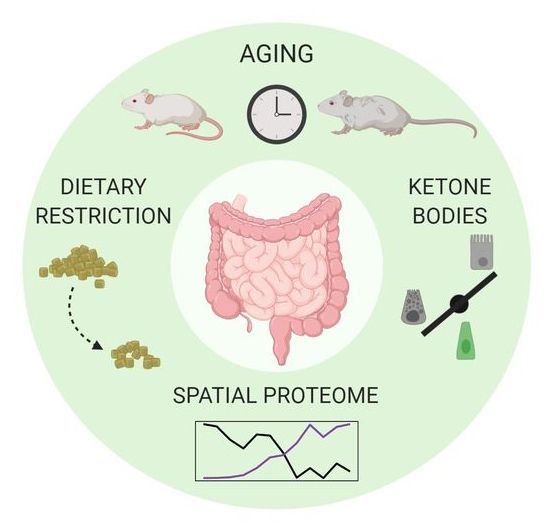The small intestine is one of the most important interfaces between the environment and our body. It is responsible for nutrient absorption but also forms a barrier against potentially harmful environmental cues. A research team, led by researchers from the Leibniz Institute on Aging—Fritz Lipmann Institute (FLI) in Jena, Germany, investigated the effects of aging and diet on the intestinal epithelium of young and old mice. They were able to show region-specific effects on the proteome and age-related impairments in adaptation to nutrient availability. Their results provide a complete picture of the spatial organization of the small intestine proteome in the mouse. The results were published in the journal Cell Reports.
The small intestine (SI) is one of the most important interfaces between the environment and our body. It has two major functions: it is responsible for absorbing nutrients from the food we eat and functions as a barrier to restrict the entry of harmful substances. The SI is a highly adaptive and dynamic organ, as it adapts to changes in nutrient intake or diet. The intestinal epithelium undergoes a process of continuous renewal, every 3–5 days.
Effects of aging and diet on the small intestine have already been investigated. It is known that aging leads to reduced absorption of nutrients by the epithelium thus contributing to malnutrition in elderly people. In addition, anatomical differences between different regions of the SI are well known, but so far, region-specific effects of aging and diet on the set of proteins that compose the intestinal epithelium had not been investigated.
